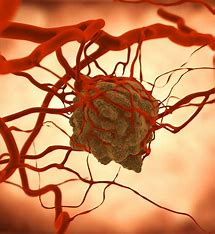Researchers from UC San Francisco and Northwestern Medicine have discovered a new accurate method to predict the best treatment for individuals with meningioma with the help of 10 other medical centers. The study shows that screening tumors based on gene expression patterns can change the course of treatment for nearly 1 in 3 people with meningioma. Meningioma is a common brain tumor that affects around 42,000 people in America annually. It is more likely to affect groups of females more than males and elderly patients. It is typically treated with either surgery or radiation depending on what number scale it is on and how severe the tumor is. The new gene expression test indicates that only 1 in 5 patients with low-grade tumors may require radiation, while approximately 2 in 5 with higher-grade tumors may benefit more from avoiding radiation. With the help of the test, researchers could see which gene was active and deactivated and discovered a set of 34 genes whose expression patterns could predict the likelihood of tumor recurrence.
The discoveries made by this study were exciting as they paved the way for new improvements. The second link also provides more information supporting the first study. Medicine is more effective when it is targeted toward a specific individual’s needs. I hope more treatments are made in the future that are targeted towards one’s needs. The studies from this research help eliminate the guesswork in patients' treatment decisions. The studies are still ongoing, and they are trying to gather more data that can help provide more personalized care in the future.
Links -
Can gene expression predict if a brain tumor is likely to grow back? | ScienceDaily
Can Gene Expression Predict if a Brain Tumor Is Likely to Grow Back? | UC San Francisco (ucsf.edu)

Learning that tumor screening tests could help change treatment course for many cancer patients (i.e. meningioma here particularly) and help minimize unnecessary procedures was rather interesting. In all honesty, I wasn't aware that tumor screening tests weren't in use until reading your post. I'm curious about how exactly these tests work, including how they determine which genes are activated / deactivated and how these patterns determine the likelihood of tumors recurring in the individual after treatment.
ReplyDeleteThis post was very interesting! I was unaware of how the procedure to determine treatment worked and am also surprised to hear that tumor screening tests were not already widely used. The potential ability to predict the most effective treatment based on one's gene expression patterns, in this case, meningioma treatments, is truly promising and minimizes the process of trial and error in these situations. It's great to see progress in this field for more personalized medicine and treatment and hopefully, more bug breakthroughs are to come!
ReplyDelete